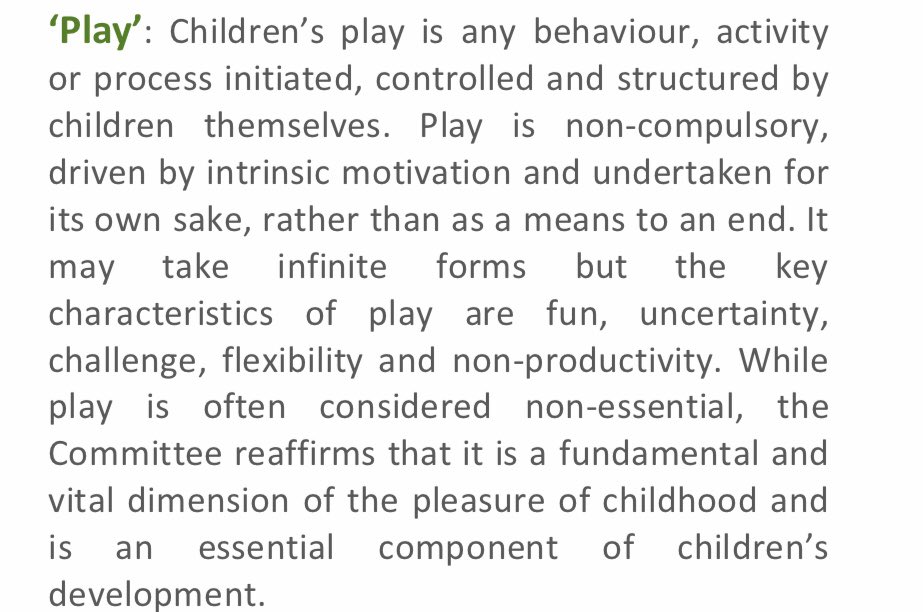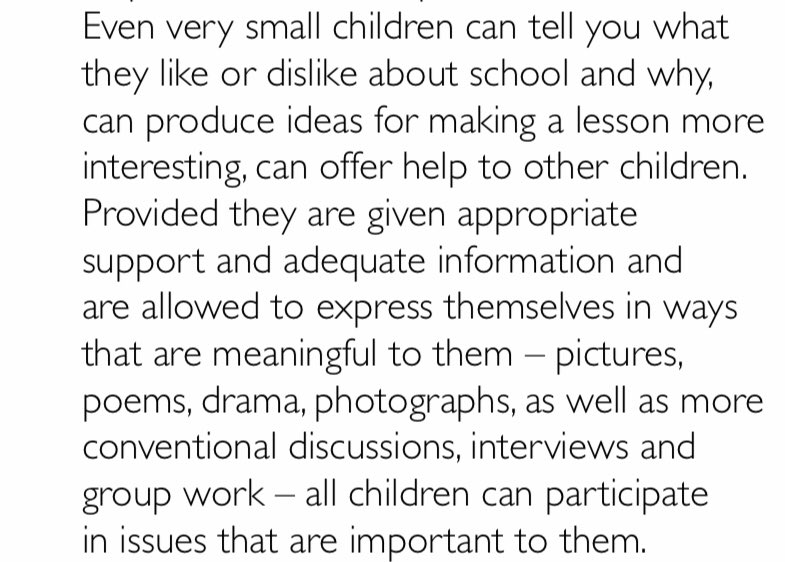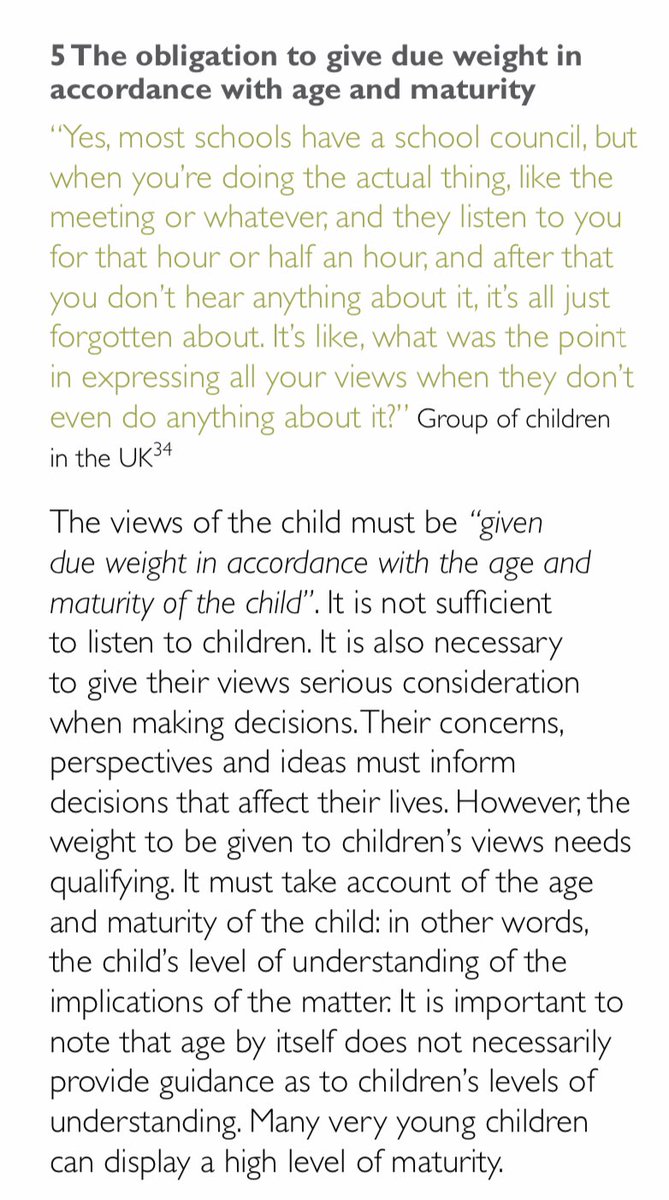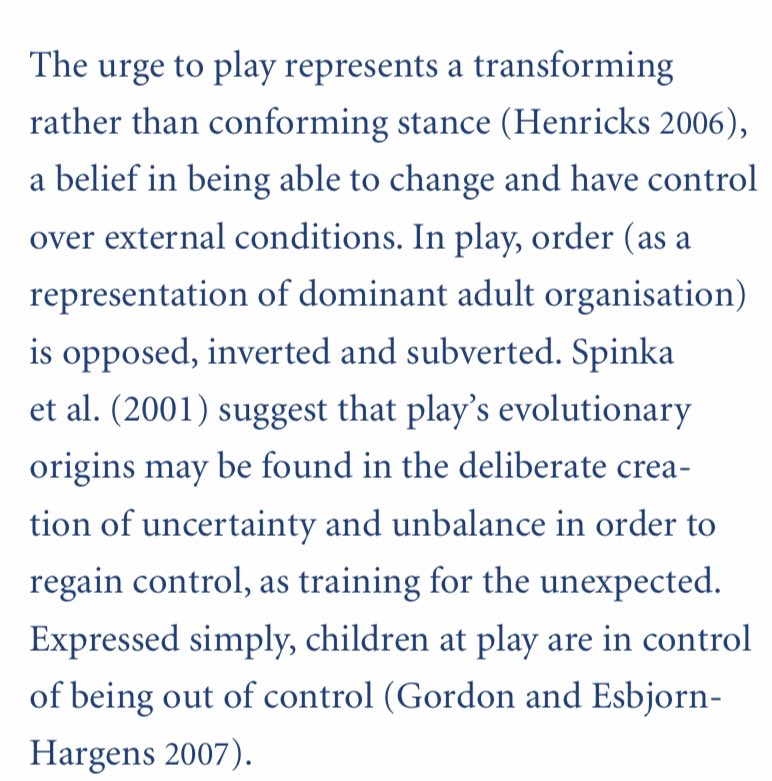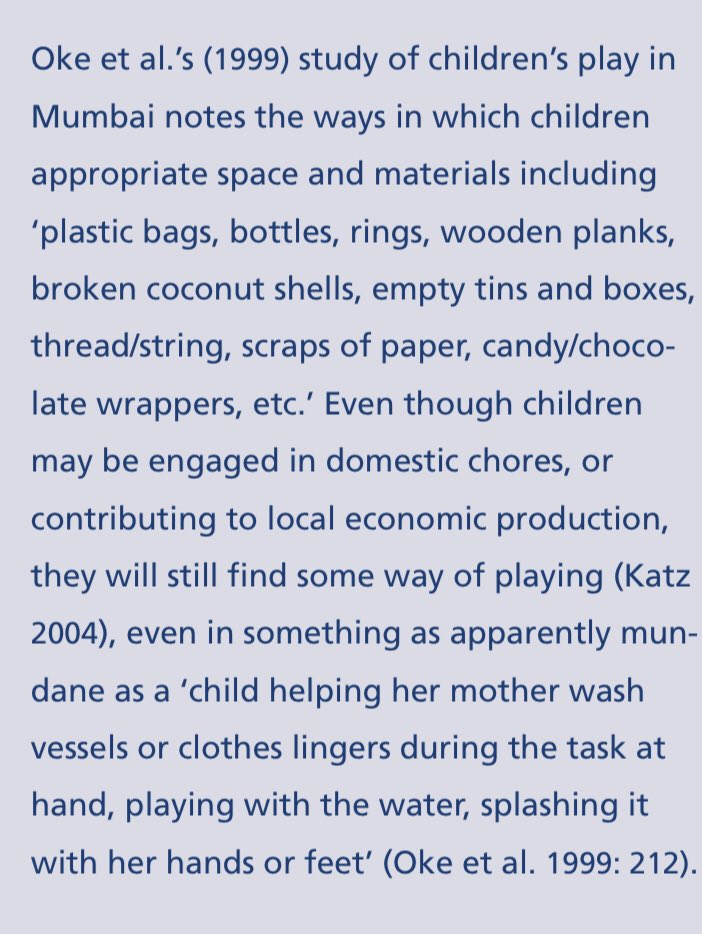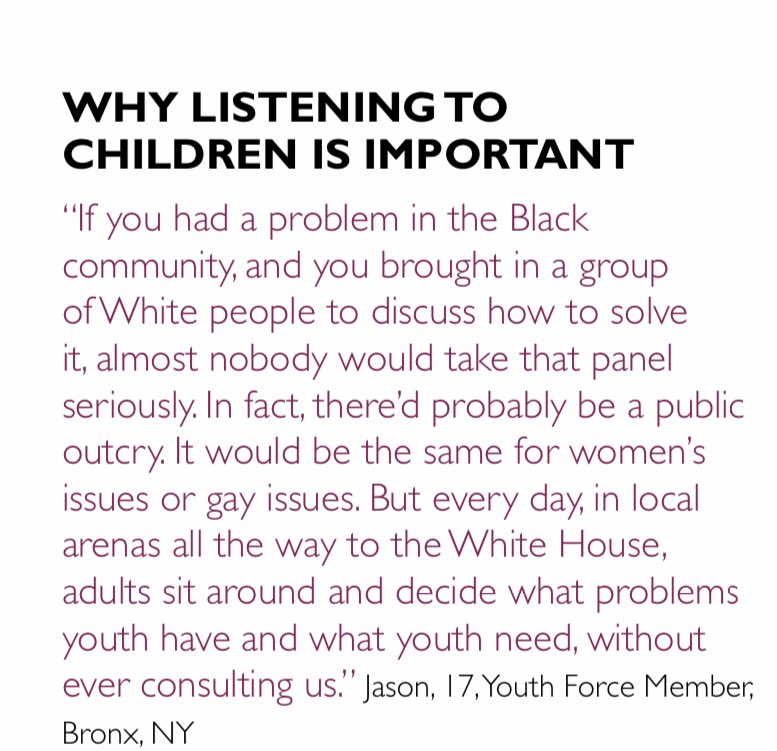Play is not a tool to be used by adults. Play isn’t something adults can ‘add’ to their sessions. Play is not about adults allowing ‘unstructured time’. ‘Play based’ is not play. Play is an internationally recognised human right. Understand this or misunderstand play.
The comment above comes from the UNCRC Committee’s General Comment No 17. The Committee produces authoritative interpretations of the CRCs Articles. This one is on Article 31 CRC, the right to play. It seeks to define play from a human rights perspective. 1/
The operation of the UNCRC is briefly explained in this short video https://sho.co/1CNA6 2/
Human rights are a fundamental recognition of our humanity. Of what it is to be human. They cannot be ‘given’ and they can’t be taken away. But they can be disrespected, misunderstood or unacknowkeged. Children’s rights are human rights. 3/
Children’s rights including participation rights. Empowerment rights from the youngest age. The right to be heard in matters affecting them, under Article 12. An imperative on adults to seek views genuinely and listen... This is from UNICEF 4/
This is not a matter of ‘tick box’ bodies. It’s not a one off event. It’s a process. It’s about genuinely seeking, respecting & acting upon children’s views. So again, this is not about adult choices, it’s about adult duties to respect rights .. from UNICEF again 5/
Adults can help provide the environment for kids to play but this doesn’t mean adults control play for adult benefits or objectives. Play BELONGS to children, Without seeking a child’s voice, we will never know what children want or understand how they play. From the IPA 6/
None of this means there can’t be coaching! But we cannot use play as a ‘tool’ of coaching or for adult agendas. To do so demonstrates a fundamental misunderstanding of play as a human right and evolutionary experience. It diminishes its value and power .. from the IPA 7/.
So we distinguish, not between adult structure & ‘unstructure’ but between child led & adult led. Kids don’t need you to create play for them. The evidence is clear: kids will play even in the most exigent of circumstances. It’s about removing the adult agenda ..8/
So we must distinguish between coached games & play. To protect the value of play, we must respect this distinction in our language & practice. This doesn’t mean coaching is ‘wrong’ only that it is not play ..Peter Gray 9/
Thus, play is not a new, complex jargonised model to promote between adults. It’s a legal imperative. A right of the child. To ensure respect for the right we must seek kids’ views. If we‘re not doing that, why are we talking about play? It’s back to adult agendas...10/

 Read on Twitter
Read on Twitter